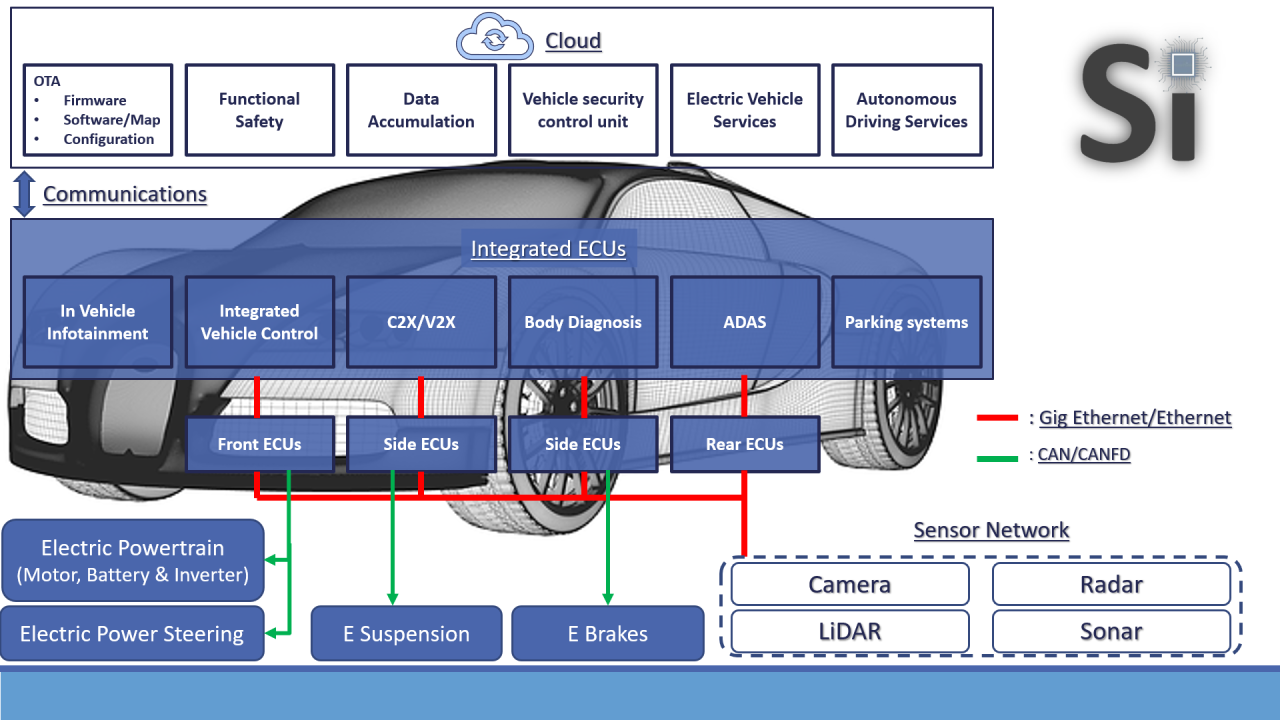
Automotive Electronic Control Units: Revolutionizing Innovation in the Automotive Industry
SiBrain Technologies Pvt Ltd
We innovate and deliver niche embedded solutions for Automotive, Semiconductor, IoT, Multimedia & Security industries.
Automotive Electronic Control Units (#ECUs)
have become the backbone of modern vehicles, enabling advanced functionality and enhancing overall performance. These compact electronic devices play a pivotal role in managing and controlling various systems within an automobile. In this blog, we will delve into the intricacies of ECUs and explore how they are driving innovation in the automotive industry.
Understanding Electronic Control Units
An Electronic Control Unit, also known as an ECU, is a dedicated microprocessor-based unit that monitors, regulates, and controls a specific set of functions within a vehicle. ECUs are designed to gather data from sensors throughout the vehicle and make intelligent decisions based on predefined algorithms and calibration maps.
Powertrain Control Module (PCM)
One of the most critical ECUs in a vehicle is the Powertrain Control Module (PCM). It oversees the operation of the engine, transmission, and other associated powertrain components. By analyzing sensor inputs such as throttle position, engine speed, and temperature, the PCM optimizes fuel injection, ignition timing, and transmission shifting, ensuring maximum performance and efficiency.
Body Control Module (BCM)
The Body Control Module (BCM) is responsible for managing various electrical systems outside the powertrain. It controls functions such as lighting, climate control, power windows, and door locks. The BCM interprets inputs from switches and sensors and activates the corresponding actuators, providing seamless control and convenience for the driver and passengers.
领英推荐
Safety Systems Control Module (SSCM)
The Safety Systems Control Module (SSCM) integrates vital safety features like Anti-lock Braking System (ABS), Electronic Stability Control (ESC), and airbag deployment. By continuously monitoring wheel speed, lateral acceleration, and other parameters, the SSCM optimizes braking performance and intervenes in critical situations to prevent accidents and protect occupants.
Innovation through ECUs
Sensor Integration and Data Processing: Automotive ECUs rely on sensor networks to gather data on factors like engine speed, temperature, throttle position, wheel speed, and airbag status. This wealth of information is continuously analyzed and processed by the ECU's microprocessors and embedded software algorithms. The ECU interprets the data, making intelligent decisions and executing precise control strategies to optimize vehicle performance and enhance safety.
Advanced Control Algorithms: The incorporation of sophisticated control algorithms within ECUs has paved the way for significant improvements in vehicle performance and efficiency. For example, electronic stability control systems utilize sensor data to detect and mitigate instances of skidding or loss of control. Additionally, anti-lock braking systems leverage ECUs to modulate brake pressure for enhanced braking performance and stability. By continuously adapting to changing road and driving conditions, ECUs ensure optimal vehicle dynamics and occupant safety.
Future Prospects: Automotive ECUs have become increasingly powerful and versatile over time, opening up new avenues for innovation in the automotive industry. The integration of advanced features like advanced driver-assistance systems (ADAS), autonomous driving capabilities, and connected vehicle technologies heavily relies on ECUs. These systems utilize ECU-driven sensor fusion, machine learning, and artificial intelligence algorithms to enable functionalities such as adaptive cruise control, lane-keeping assistance, collision avoidance, and more.
Conclusion
Automotive Electronic Control Units have transformed vehicles from mechanical machines into sophisticated, intelligent systems. With their ability to collect, process, and act upon vast amounts of data, ECUs have fueled innovation in the automotive industry. From enhancing safety systems to optimizing performance and efficiency, ECUs have become instrumental in shaping the future of mobility. As technology continues to advance, we can expect ECUs to play an even more significant role in driving the next wave of automotive innovation.